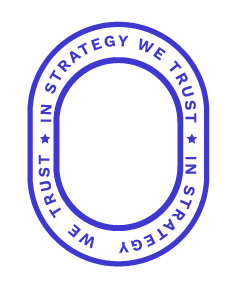Be proactive instead of reactive:
Why PR strategy is critical
Public relations is often revered as reactivity to negative news or situations. While it’s great to be able to think on your feet and handle a crisis or new event when it comes along, a well-developed marketing strategy goes a long way in keeping your brand’s awareness high throughout the year.
Having a strategic plan for your public relations means you can create content to promote your brand throughout the year and be ready if you do see an immediate crisis.
Here are our top five tips for being proactive with your PR:
Create a calendar
Schedule out what services or products you want to promote during different weeks or months. This will help you plan your messaging and make sure you have the product availability for when you do your push.
This will also help you ensure that you are continuously working on something to promote your brand and keeping your content as fresh as possible. Review your public relations calendar with your team and with all public touchpoints so your messaging stays consistent.
Special days, special promotions
There are several holidays and observances throughout the year where you can promote your business in a fun and creative way. With nationally dedicated days for nearly every food, activity, or type of person, there are countless opportunities for you to engage with and energize your audience.
Serious topics like drowning prevention month and medical awareness months can be an opportunity to partner with your community for education purposes through sponsorships or personal stories from your team on how your services can help solve problems.
Keeping on top of these events goes a long way in making sure you are part of the conversation beyond running sales or events around major holidays.
Pitch ahead of the game
A great proactive PR plan will include pitching story ideas to the local media, including “experts” from your business who can speak on relevant topics.
Here are some examples of this:
- During back-to-school time, a chiropractor’s office might pitch an expert to talk about backpack weights and tips to prevent kids from carrying too much.
- When it comes time for New Year’s resolutions, gyms often encourage their trainers to talk about routines or nutrition.
- When summer is around the corner, a local daycare could promote expert activity ideas that parents can do at home with their kids.
- When an unexpected pandemic hits, many businesses might pitch their stay-at-home solutions for the upheaval in everyone’s lives.
While not all these pitches lead to direct sales, they create brand awareness and leverage your business as an expert source so when a potential client needs what you offer, your business is at the top of their mind.
Prepare for an emergency
The time to be reactive to a crisis may arise, but proactively preparing for an emergency can make the process much smoother and less stressful.
Here are some strategies you can put in place:
- Make sure you have a communications plan – who does the talking, who approves messaging, etc.
- Have access to make immediate updates to the website, social media, voicemail messaging, customer e-mails, if necessary.
- Identify what your primary means of communication to your customers will be during a crisis and make plans to funnel all other channels to that main source.
- Double-check that all media and community leader contacts are up to date.
By creating a crisis management public relations strategy, you can ensure minimal impact on your brand’s image during a disaster.
Take time to research
Having a deep understanding of your brand’s message, audience, and values will help you stay on track during a crisis. Take the time to research your plan so you can target the right message to the right audience.
Some questions that can be answered through PR research and planning include:
- Who is my target audience? What demographics would be most interested in my products?
- Why is this product or service important to them? How will this make a difference in their lives?
- Which type of communication does this audience respond best to?
- What are my competitors doing successfully?
- What do we offer that sets us apart from our competitors?
Finding the answers to these questions while building your PR strategy helps avoid wasteful and ineffective marketing strategies and ensures you can target a specific audience that will be the most interested in what you have to offer.
Reactive PR is usually a necessary part of business, but being proactive should be as well. Both help you plan for your business’s future, protect your image, and work in conjunction with the marketing you’re already doing. If you’re not getting proactive with your PR, it’s time to make it an essential part of your marketing plan.


